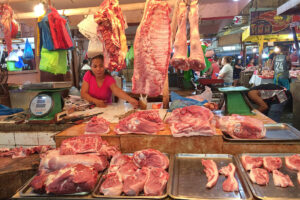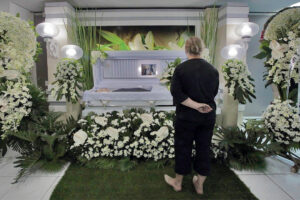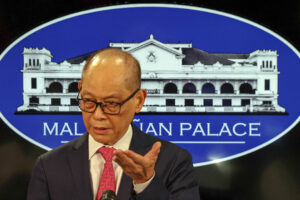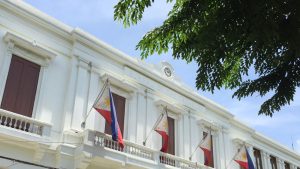DoH warns public of blood donation scams

By Patricia B. Mirasol
THE PUBLIC should remain vigilant against scams related to the selling and donating of blood, according to the Department of Health (DoH) and National Voluntary Blood Services Program (NVBSP).
While the DoH has no data on the number of blood donation scams that were reported during the pandemic, the issue is alarming enough to merit informing the public, said Health Undersecretary Ma. Rosario S. Vergeire.
“The DoH and NVBSP became aware of the national news aired [in September] regarding a family that was scammed by a ‘blood donor.’ Both the DoH and NVBSP condemn such acts,” she said to BusinessWorld in an e-mail. The health agency has come out with print advertisements to warn the public of these scams.
The aforementioned news report described a critically ill coronavirus disease 2019 (COVID-19) patient with a rare blood type (AB+) in need of a blood transfusion. The patient’s family was scammed out of P5,000 by a stranger on Facebook who indicated willingness to donate blood, but first needed an upfront amount to pay for the fare to the hospital.
‘BLACK MARKET’
Blood donation scams are caused by patients in need of blood or blood products who are compelled to look for such outside authorized institutions, if or when the blood stocks in the hospital where the patient is admitted are not sufficient.
“I heard from one patient, a National Center for Mental Health employee, that there is a black market for blood,” said Dr. Manuel R. Velasco, Jr., a hematology fellow at the Makati Medical Center (MMC), in a Viber message to BusinessWorld. “This is difficult to do because blood transfer and networking can only be done between blood banks. There is a required cold chain for some of the blood, and time is an important factor.”
Dr. Velasco’s patient, however, insisted that a group exists that can get blood to anyone, anytime.
SAFE SOURCE
The safest source of blood and blood products are from regular and unpaid volunteer blood donors, Dr. Vergeire said, as the prevalence of transfusion transmissible infections is lowest among this population. The DoH is encouraging volunteers to donate blood to provide a safe and sufficient supply.
According to the World Health Organization, 79 countries collect over 90% of their blood supply from voluntary unpaid blood donors. Fifty-six countries, on the other hand, collect more than half of their blood supply from family or paid donors.
The MMC blood bank has no control over paid donors and discourages direct blood donors because there is a tendency to lie in the screening process, said Dr. Velasco. “Although it does not affect the safety of the blood, and testing is standard, it may affect the safety of the donor,” he added. — with Bronte H. Lacsamana
To report blood scammers, contact the Department of Health and the National Voluntary Blood Services Program at (02) 89953846 or nvbsp1@doh.gov.ph.




